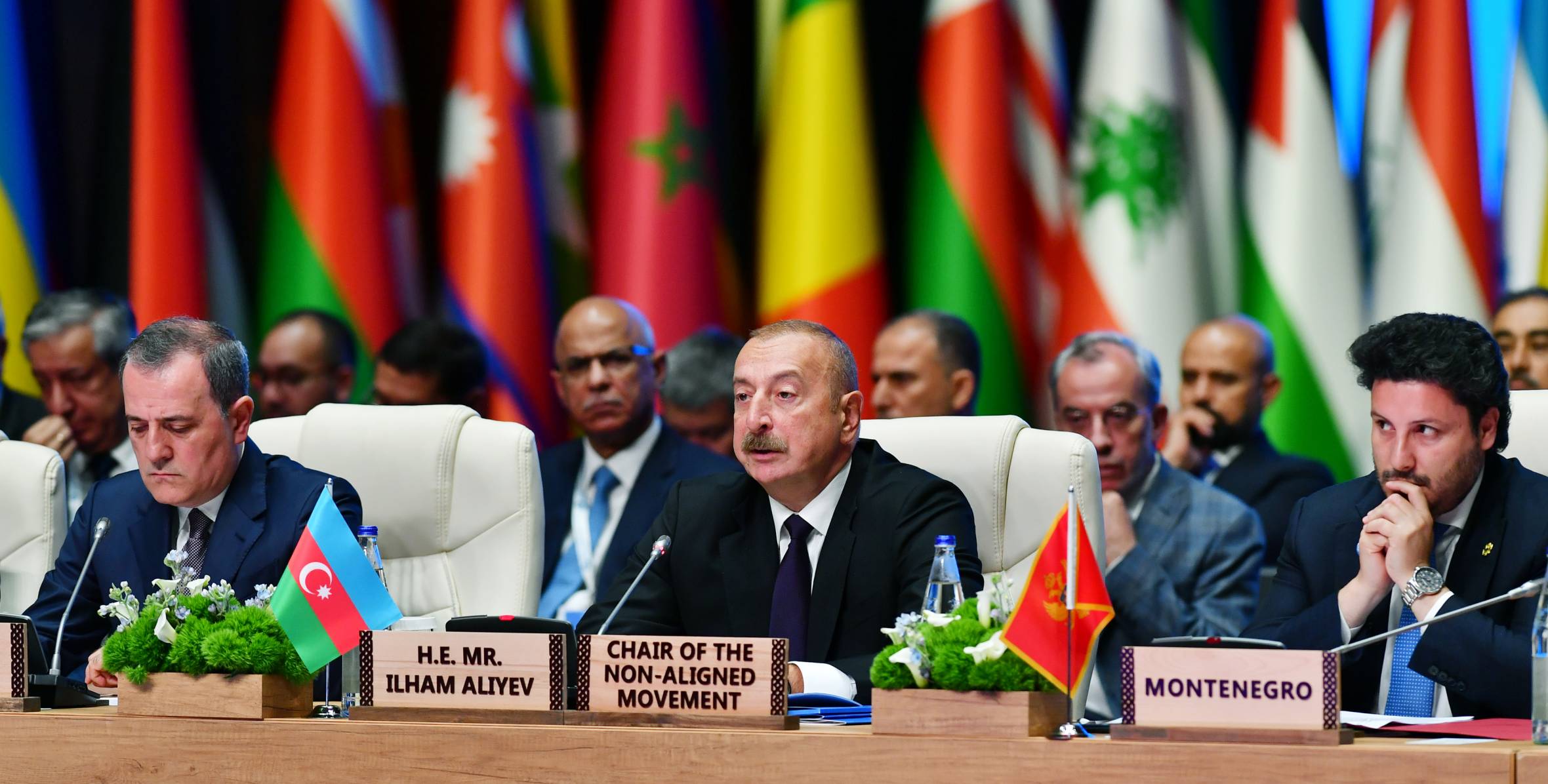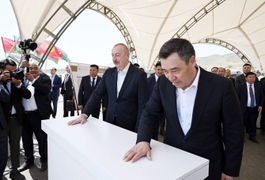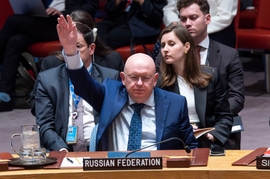Azerbaijani President Ilham Aliyev has said that France supports Armenian separatism in the Karabakh region of Azerbaijan.
“France, which is falsely presenting herself as a defender of human rights and international law, still interferes in domestic affairs of other countries,” Aliyev said while addressing the Ministerial Meeting of the Non-Aligned Movement Coordinating Bureau entitled “NAM: United and steadfast in confronting emerging challenges” in Baku on July 5, Azertag reported.
“The recent withdrawal of French troops from Mali and Burkina Faso once again demonstrated that the outrageous neo-colonialism policy of France in Africa is doomed to failure. Unfortunately, France is trying to impose the same ill practice in the region of South Caucasus by supporting Armenian separatism in the Karabakh region of Azerbaijan and by means of geopolitical rivalry, foreign military presence and colonial policy of 'Orientalism',” Aliyev noted.
“One of the countries that still pursue neo-colonialism is France. French-administered territories outside Europe are nasty remains of the French colonial empire,” he stressed.
President Aliyev urged France to respect the sovereignty of Comoros over the island of Mayotte as well as the rights of the New Caledonian people and other peoples in French overseas communities and territories.
“The recent killing of the 17-year-old teenager of Algerian origin by French police is yet another sign of racism and Islamophobia in this country,” the president said.
The killing of the teenager of North African descent by a police officer last week has thrown France into chaos, sparking violent demonstrations across the country and reigniting long-simmering tensions between the youth and the police, who have been accused of brutality and racial discrimination.
In the past week, rioters have looted stores, targeted schools, police stations, libraries and other public buildings, and, in one case, attacked a mayor’s home and his family. The rioting has shown signs of cooling down. About 72 people were arrested overnight on July 3, a sharp decrease compared with the weekend.
Last week, French President Emmanuel Macron expressed France's determination on the Karabakh issue at a meeting with the Armenian community in Marseille.
"I have put and will continue to put more pressure on (Azerbaijani President Ilham) Aliyev than (Armenian Prime Minister Nikol) Pashinyan himself. The question is for Pashinyan. I am the only one who has a clear position and message on the Artsakh (Karabakh) issue. Don't doubt my determination regarding Artsakh (Karabakh) and Armenia in general. I will continue my efforts even if I am practically the only one in the international family with this agenda", the French president said on June 30.
Macron had also made anti-Azerbaijan statements during the 44-day Karabakh war in 2020, and later in the post-conflict period, demonstrating a biased attitude towards Azerbaijan. The French government, French towns, and aid groups have then spared no effort to help Armenia. French cargo flights delivered medical supplies and other assistance tools to Yerevan shortly after the end of hostilities.
Following the same war, the French Senate and lower house of the French parliament adopted resolutions to push the government to green-light the recognition of the so-called “Nagorno-Karabakh”, although even Armenia itself rejected to recognize this illegal separatist regime in the Azerbaijani lands. The resolution served as a recommendation and had no mandatory power.
Armenia and Azerbaijan have long been at odds over the latter’s Karabakh region. On September 27, 2020, the decades-old conflict between the two countries spiralled after Armenia’s forces deployed in occupied Azerbaijani lands shelled military positions and civilian settlements of Azerbaijan. During counter-attack operations, Azerbaijani forces liberated over 300 settlements, including the cities of Jabrayil, Fuzuli, Zangilan, Gubadli, and Shusha. The war ended in a statement signed on November 10, 2020, under which Armenia returned the occupied Aghdam, Kalbajar, and Lachin districts to Azerbaijan.
Shortly after the war, the Azerbaijani authorities voiced readiness and determination to launch negotiations with Armenia that would ultimately bring the long-awaited peace to the region.
However, the process suffered major setbacks due to Armenia’s demands, including so-called “rights and security” of nearly 25,000 Armenians living in the Karabakh region, in addition to avoiding fulfilling its obligations under the Trilateral statement, such as the withdrawal of its armed formations from the Azerbaijani territories.
President Aliyev has repeatedly said that the demands of the Armenian side would not be considered since Armenians living in the Karabakh region are the citizens of Azerbaijan and issues regarding their rights is Azerbaijan’s internal matter.







 Iranian President Ebrahim Raisi expressed Tehran’s readiness to participate in significant development projects in Sri Lanka during the inauguratio...
Iranian President Ebrahim Raisi expressed Tehran’s readiness to participate in significant development projects in Sri Lanka during the inauguratio...
 As the conflict between Ukraine and Russia escalates, the strategic importance of Kharkiv, Ukraine's second-largest city, has come sharply into focus.
As the conflict between Ukraine and Russia escalates, the strategic importance of Kharkiv, Ukraine's second-largest city, has come sharply into focus.
 Iran and Pakistan have signed eight cooperation documents in various fields, and agreed to strengthen ties to fight terrorism in the region.
Iran and Pakistan have signed eight cooperation documents in various fields, and agreed to strengthen ties to fight terrorism in the region.



